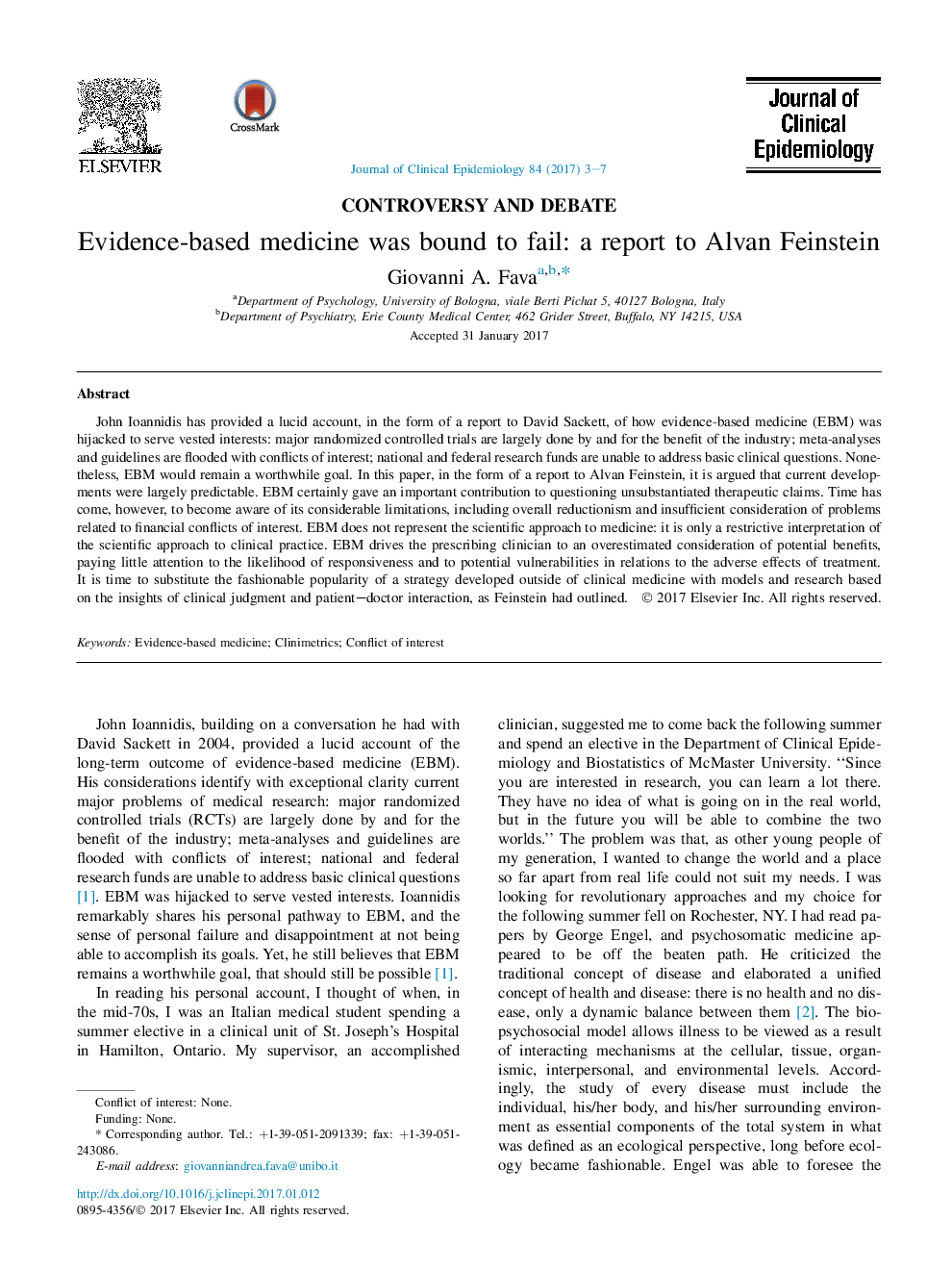| کد مقاله | کد نشریه | سال انتشار | مقاله انگلیسی | نسخه تمام متن |
|---|---|---|---|---|
| 5121713 | 1486842 | 2017 | 5 صفحه PDF | دانلود رایگان |
- Evidence-based medicine does not represent the scientific approach to medicine: it is only a restrictive interpretation of the scientific approach to clinical practice.
- Evidence-based medicine drives the prescribing clinician to an overestimated consideration of potential benefits, paying little attention to the likelihood of responsiveness and to potential vulnerabilities in relations to the adverse effects of treatment.
- It is time to substitute the fashionable popularity of a strategy developed outside of clinical medicine with models and research based on the insights of clinical judgment and patient-doctor interaction, as Alvan Feinstein had outlined in the 90s.
John Ioannidis has provided a lucid account, in the form of a report to David Sackett, of how evidence-based medicine (EBM) was hijacked to serve vested interests: major randomized controlled trials are largely done by and for the benefit of the industry; meta-analyses and guidelines are flooded with conflicts of interest; national and federal research funds are unable to address basic clinical questions. Nonetheless, EBM would remain a worthwhile goal. In this paper, in the form of a report to Alvan Feinstein, it is argued that current developments were largely predictable. EBM certainly gave an important contribution to questioning unsubstantiated therapeutic claims. Time has come, however, to become aware of its considerable limitations, including overall reductionism and insufficient consideration of problems related to financial conflicts of interest. EBM does not represent the scientific approach to medicine: it is only a restrictive interpretation of the scientific approach to clinical practice. EBM drives the prescribing clinician to an overestimated consideration of potential benefits, paying little attention to the likelihood of responsiveness and to potential vulnerabilities in relations to the adverse effects of treatment. It is time to substitute the fashionable popularity of a strategy developed outside of clinical medicine with models and research based on the insights of clinical judgment and patient-doctor interaction, as Feinstein had outlined.
Journal: Journal of Clinical Epidemiology - Volume 84, April 2017, Pages 3-7
